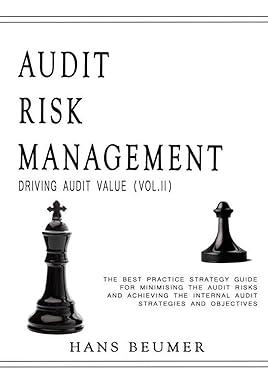Question
The Efficient Markets Hypothesis is an investment theory primarily derived from concepts attributed to Eugene Famas research work as detailed in his 1970 book, Efficient
The Efficient Markets Hypothesis is an investment theory primarily derived from concepts attributed to Eugene Famas research work as detailed in his 1970 book, Efficient Capital Markets: A Review of Theory and Empirical Work. Fama put forth the basic idea that it is virtually impossible to consistently beat the market to make investment returns that outperform the overall market average as reflected by major stock indexes such as the S&P 500 Index. According to Famas theory, while an investor might get lucky and buy a stock that brings him huge short-term profits, over the long term he cannot realistically hope to achieve a return on investment that is substantially higher than the market average.
Famas investment theory which carries essentially the same implication for investors as the Random Walk Theory is based on a number of assumptions about securities markets and how they function. These assumptions include the one idea critical to the validity of the efficient markets hypothesis: the belief that all information relevant to stock prices is freely and widely
available, universally shared among all investors. As there are always a large number of both buyers and sellers in the market, price movements always occur efficiently (i.e., in a timely, up-to-date manner). Thus, stocks are always trading at their current fair market value.
The major conclusion of the theory is that since stocks always trade at their fair market value, then it is virtually impossible to either buy undervalued stocks at a bargain or sell overvalued stocks for extra profits. Neither expert stock analysis nor carefully implemented market timing strategies can hope to average doing any better than the performance of the overall market. If thats true, then the only way investors can generate superior returns is by taking on much greater risk.
There are three variations of the hypothesis the weak, semi-strong, and strong forms which represent three different assumed levels of market efficiency.
Weak Form Efficient Markets Hypothesis
The weak form of the EMH assumes that the prices of securities reflect all available public market information but may not reflect new information that is not yet publicly available. It additionally assumes that past information regarding price, volume, and returns is independent of future prices. It implies that technical trading strategies cannot provide consistent excess returns because past price performance cant predict future price action that will be based on new information. This form of the EMH, while it discounts technical analysis, leaves open the possibility that superior fundamental analysis may provide a means of outperforming the overall market average return on investment.
There are three variations of the hypothesis the weak, semi-strong, and strong forms which represent three different assumed levels of market efficiency.
Weak Form Efficient Markets Hypothesis
The weak form of the EMH assumes that the prices of securities reflect all available public market information but may not reflect new information that is not yet publicly available. It additionally assumes that past information regarding price, volume, and returns is independent of future prices. It implies that technical trading strategies cannot provide consistent excess returns because past price performance cant predict future price action that will be based on new information. This form of the EMH, while it discounts technical analysis, leaves open the possibility that superior fundamental analysis may provide a means of outperforming the overall market average return on investment.
Semi-strong Form Efficient Markets Hypothesis
The semi-strong form of the theory dismisses the usefulness of both technical and fundamental analysis. The semi-strong form of the EMH incorporates the weak form assumptions and expands on this by assuming that prices adjust quickly to any new public information that becomes available, therefore rendering fundamental analysis incapable of having any predictive power about future price movements. For example, when the monthly Non-farm Payroll report in the U.S. is released each month, you can see prices rapidly adjusting as the market takes in the new information.
Strong Form Efficient Markets Hypothesis
The strong form of the EMH holds that prices always reflect the entirety of both public and private information. This includes all publicly available information, both historical and new, or current, as well as insider information. Even information not publicly available to investors, such as private information known only to a companys CEO, is assumed to be always already factored into the companys current stock price. So according the strong form of the EMH, not even insider knowledge can give investors a predictive edge that will enable them to consistently generate returns that outperform the overall market average.
Please take a position and defend it.
Step by Step Solution
There are 3 Steps involved in it
Step: 1

Get Instant Access to Expert-Tailored Solutions
See step-by-step solutions with expert insights and AI powered tools for academic success
Step: 2

Step: 3

Ace Your Homework with AI
Get the answers you need in no time with our AI-driven, step-by-step assistance
Get Started


